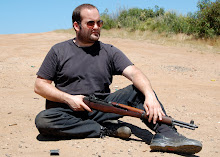Tim Russert died this past Friday and the scary part is that not only did we lose a good man and an excellent journalist, but we might have finally lost the whole concept of journalism as we have known it.
In a day and age when journalism has been lost in the binary opposition of Fox News and CNN, Russert was a breath of fresh air. He was a tenacious interviewer whose political allegiance was not obvious or even an issue: the definition of a true journalist removed from the issue at hand and aggressively digging for the truth.
Russert would ask questions that focused on the interviewee's accountability to the decisions he or she had made. That is the most important revelation that can be exposed in the political sphere. Russert asked questions, and demanded answers, that removed the political rhetoric and got to the true heart of the matter and looked at the people who make decisions that affect all of us.
Much like Hunter S. Thompson's suicide a few years back, Russert's death was a shock. And just as the bullet that coursed through Thompson's brain had no idea what magic it was destroying, Russert's heart had no clue as to what it was doing when it failed on Friday.
Journalism already was at a crossroads before Russert's death. Beyond the left/right issue of reporting, advertisement-dictated reporting, advertorial and the rise of citizen journalism all have caused to the public both to question the validity of the reporting and to wonder about its worth. This industry has long insisted that it was the path to truth and the torch bearer guiding the way through the confusing quagmire of political, corporate and special interests. This is no longer the case and frankly, it is not needed anymore.
There are multiple paths to the "truth," and there are multiple truths, unique to each individual and free of binding set of criteria. What is the truth for one person may not be the truth for another, and even that first person might change his or her mind before too long. Dealing with this new way to observe the world around us, journalism has lost its way; it may not recover to any recognizable point and it has proven that it has a hard time deciding on how to re-invent itself.
Journalism will continue in some form, I'm sure, but it is disheartening to see a true journalist go before his or her time whether from his own hand (Thompson), nature (Russert) or by the hand of someone else (Anna Politkovskaya, the Russian journalist who dug too deep into Vladimir Putin's regime).
In a industry that is gripping to find heroes, it's tough to lose one from the top.
Sunday, June 15, 2008
Thursday, June 12, 2008
A shaky start
I'm finally up and running, though it took me a little while to get going here. It's been three months actually since the time I made my account to the time of my first blog. There was a series of problems, unforeseen mostly, and therefore unplanned for, that can fit squarely into the cross hairs of blame.
The main reason for the delay can be traced back to my own sense of feigned accomplishment after finishing the tedium of launching my blog. I created the account in March and rather that posting immediately, I felt like patting myself on the back for a job well-done and figured I could post something the next morning. That didn't work exactly how I thought it would since my blog was flagged as a spam blog. It makes sense, in hindsight, that an account created with no content should standout as a potential problem.
What I hadn't anticipated was how complicated it would be to correct this problem. I had to e-mail tech support and had to wait for review. I had to do that twice before I figured out that it had worked. In the meantime, I became disinterested in my blog and with school exponentially growing in intensity in April and May, I really had no inclination to start blogging with a bogged-down brain.
But now my blog is up and I have learned another valuable life lesson: Don't put off to tomorrow blogs you want to post today. So here it is ...
The main reason for the delay can be traced back to my own sense of feigned accomplishment after finishing the tedium of launching my blog. I created the account in March and rather that posting immediately, I felt like patting myself on the back for a job well-done and figured I could post something the next morning. That didn't work exactly how I thought it would since my blog was flagged as a spam blog. It makes sense, in hindsight, that an account created with no content should standout as a potential problem.
What I hadn't anticipated was how complicated it would be to correct this problem. I had to e-mail tech support and had to wait for review. I had to do that twice before I figured out that it had worked. In the meantime, I became disinterested in my blog and with school exponentially growing in intensity in April and May, I really had no inclination to start blogging with a bogged-down brain.
But now my blog is up and I have learned another valuable life lesson: Don't put off to tomorrow blogs you want to post today. So here it is ...
Subscribe to:
Comments (Atom)
